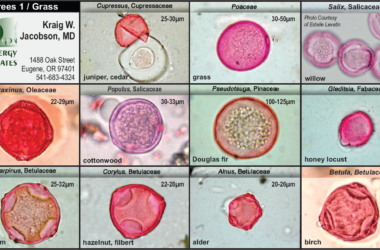“Give a man a fish and you feed him for a day. Teach a man to fish and you feed him for a lifetime.” This Chinese proverb rings true to many, but I suggest this newer adage as equally vital: Learn about the many health benefits derived from eating wild caught fish such as Salmon, and you will live a long healthy life!
Salmon is not without a rich store of folklore such as Loki, the trickster god in Norse mythology who tricked the blind god Hod into killing Baldur, the most beloved of all the gods. To escape the wrath of the other gods, Loki transformed himself into a lithe salmon and leapt into a pool. However Thor was quick enough to catch Loki. The taper towards the back of the fish’s body was said to be the result of Thor’s grip.
We have been enjoying salmon and it’s many health benefits as a food ever since this beautiful fish appeared in the Earth’s waters. Like other fish, in addition to being consumed in fresh form, preservation techniques such as smoking or salting were used to preserve the salmon. Smoked salmon (my favorite) is still considered traditional fare in many cuisines throughout the world.
Flash-frozen or canned wild caught salmon maintains excellent flavor and is available year-round and comes by its wonderful pink color naturally from the krill and shrimp they eat. The pigment is from an anti-oxidant called astaxanthin, which has ten times the anti-oxidant activity of beta-carotene we find in our carrots, yellow squash and other vegetables. The “salmon farmers” that produce farmed salmon use color wheels like found at the paint store to determine what color they want for their salmon product, then add coloring agents to their food to achieve the desired hues.
Much of benefit of consuming salmon is the health supporting levels of omega 3 essential fatty acids (EFA’s) that are naturally occurring in the fish. Essential fats are those fats we need to survive, but that we are not able to produce on our own or convert from other dietary fats. We often have an abundance of omega 6 fats from processed foods, nuts, grain, and common salad oils in our diets, with not enough omega-3 fats consumed to achieve a healthier balance. Along with the shorter chain Omega-3 fats, salmon is a rich source of longer chain fatty acids EPA and DHA, which are important nutrients for our brains, eyes and inflammatory balance.
Many researchers consider DHA to be the most important fat found in the human brain, and the unusual concentration of this omega-3 fatty acid in salmon helps explain the research-documented benefits of salmon and omega-3 fish intake for thinking and the decreased risk of certain brain-related problems that accompanies fish consumption.
Omega-3 intake and consumption of omega-3 fish has been associated with decreased risk of macular degeneration. In the case of macular degeneration (a chronic eye problem in which material in the center of the retina on the back of the eyeball begins to deteriorate and cause loss of central vision), two salmon servings per week is the amount that has been shown to significantly decrease risk of this disease.
Intake of fish rich in omega-3 fat is also associated with decreased risk for several types of cancer such as colorectal cancer, prostate cancer, and breast cancer. Some of the strongest findings for decreased cancer risk following regular intake of omega-3 fish involve the blood cell or lymph cell-related cancers including leukemia, multiple myeloma, and non-Hodgkins lymphoma. As in many cardiovascular studies, cancer risk studies typically begin to show measurable benefits when omega-3 fish are consumed at least once per week.
Often overlooked is the unique protein content of salmon. Studies have indicated that small bioactive protein molecules in salmon called peptides provide support for joint cartilage, insulin effectiveness, and control of inflammation. Salmon is also an excellent source of Vitamin D, containing more of this important vitamin than butter, shrimp or liver.
With respect to sustainability, Monterey Bay Aquarium in Monterey, California has found that Chinook salmon is a low-risk salmon in terms of four sustainability criteria: the inherent vulnerability of the fish, the effects of fishing on the overall habitat, the status of wild stocks, and the nature of the by-catch (fish other than salmon that are caught unintentionally during salmon fishing).
We are blessed in the Northwest with an abundance of local food choices, both for home cooking and in meals enjoyed at our favorite restaurants. Along with the richer flavor of these foods that have traveled less distance from farm or sea to our plates is the abundance of healthy nutrients also present. For improved health and longevity include salmon in at least two of your meals per week, and for the planet’s health always choose wild caught fish. Salud.






